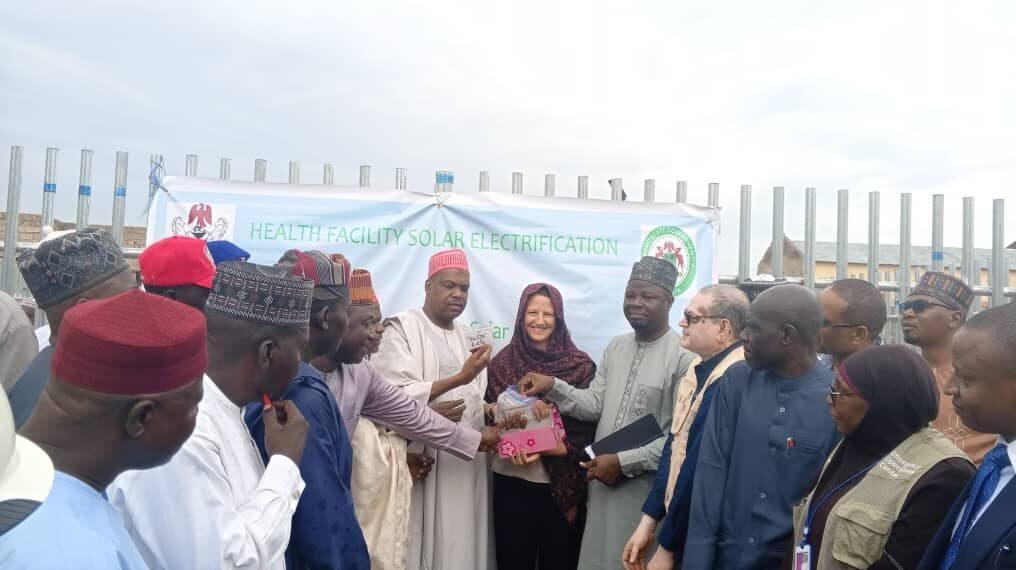In a major boost to healthcare delivery in Kano State, GAVI, the Vaccine Alliance has partnered with the United Nations Children’s Fund (UNICEF), the Bill & Melinda Gates Foundation, and the World Health Organization (WHO) to install solar power systems in 28 Primary Healthcare Centres (PHCs). The groundbreaking initiative is aimed at improving vaccine storage, enhancing maternal healthcare, and delivering uninterrupted medical services across the state.
Each of the 28 selected PHCs, including Jogana, Rabiu Musa, Gezawa, Daurawa, Kundila, and Nafisatu Mammud, has been equipped with an 8-kilowatt solar system capable of powering laboratories, maternity wards, outpatient departments, and vaccine cold chain facilities. Speaking during the handover ceremony at PHC Panshekara on Monday, GAVI’s Senior Country Manager, Jessica Crawford, described the project as a “critical intervention” to close immunisation gaps and strengthen primary healthcare delivery in Kano.
According to Crawford, nearly two-thirds of children in Kano are under-immunised, with many missing their full course of vaccines. She explained that the solar electrification project will not only ensure consistent cold storage for vaccines but will also power essential medical equipment, reduce zero-dose cases, and improve overall maternal and child health services in Nigeria. She added that GAVI has invested heavily in cold chain infrastructure, demand generation, and vaccine procurement, but emphasised that long-term sustainability and protection of the solar facilities are essential to maximising community impact.
Crawford also revealed during her courtesy visit to Governor Abba Yusuf that GAVI plans to invest about $5 million over the next two years in supporting health policies and programmes in Kano State.
Read also:
- Kano, UNICEF to expend N1billion in feeding 17,000 malnourished children
- Gov Diri bags UNICEF, Soccer Ambassador awards
- UNICEF tasks Kano with improving budget for children
Rahama Farah, Chief of UNICEF’s Kano Field Office, represented by Michael Banda, Officer in Charge, explained that the 28 PHCs were selected from 371 across the state based on high numbers of zero-dose children, poor electricity supply, and low staffing. He stressed that with reliable electricity, vaccines will be stored safely, and healthcare workers will be able to deliver 24/7 services while reducing dependence on fossil fuels, thus building a more sustainable and equitable health system.
Kano State Commissioner for Health, Dr. Abubakar Labaran, reaffirmed the government’s commitment to reducing maternal and child mortality. He noted that the solarisation of PHCs would play a vital role in eliminating zero-dose cases and warned facility heads against misuse of the equipment. He thanked GAVI and its partners for their continued support, assuring them of proper utilisation and maintenance of the new systems.
With this landmark project, Kano takes a significant step towards reliable healthcare delivery, improved immunisation coverage, and a sustainable energy future.






